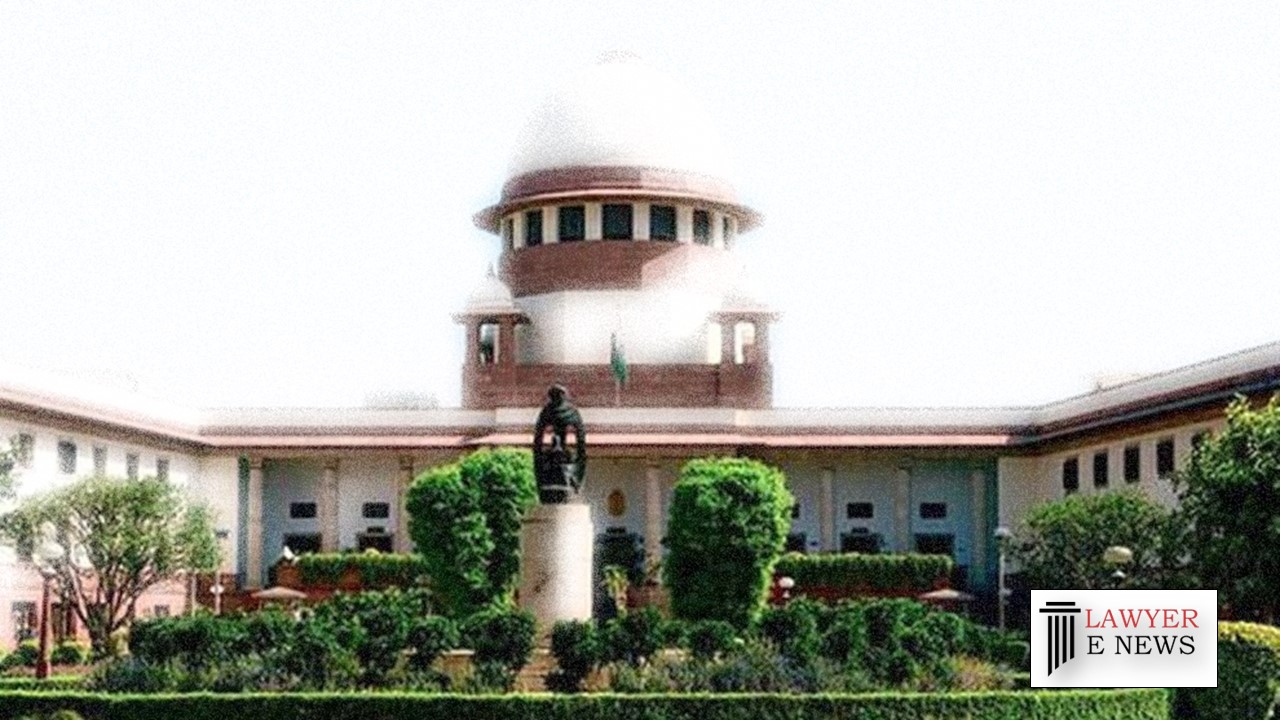-
by sayum
14 February 2026 2:22 PM



The Supreme Court has set aside a High Court order allowing the construction of a compound wall under police protection, citing the failure to include all potentially affected parties. Delivered by Justices Abhay S. Oka and Ujjal Bhuyan, the ruling emphasizes the importance of impleading necessary parties in legal proceedings to ensure fairness and legality.
Background: The case arose from a dispute over the construction of a compound wall on the land of Parsi Dairy Farm, which was subject to an Arbitration Petition. Despite an interim application being filed, alleging obstruction from local villagers, the High Court permitted the construction based on "Minutes of Order" submitted by the advocates without hearing the objections of the local tribals who would be affected by the construction. This led to an appeal challenging the legality of the High Court's decision.
Impleading Necessary Parties: The Supreme Court underscored that the High Court’s decision was flawed due to the non-joinder of necessary parties, specifically local tribals whose properties would be affected. The Court emphasized, “The issue of whether the third parties' properties would be landlocked due to the construction of the wall could be decided only after hearing the concerned parties.”
Practice of Minutes of Order: The judgment delves into the practice of passing orders based on "Minutes of Order." The Court clarified that such orders, while a courtesy to the Court, must be lawful and involve all necessary parties. “An order passed in terms of the 'Minutes of Order' is not a consent order. It is an order in invitum for all purposes,” the Court noted.
Legal Reasoning: The Supreme Court highlighted the responsibilities of both advocates and the judiciary to ensure the legality of orders and the inclusion of all affected parties. The judgment emphasized, “Before tendering the 'Minutes of Order' to the Court, the advocates must consider whether an order, if passed by the Court in terms of the 'Minutes of Order,' would be lawful.”
Justice Abhay S. Oka remarked, “An illegality has been allowed to be perpetrated under the protection of the police. Even the Government counsel did not perform his duty by submitting before the Court as an officer of the Court about the failure to implead the necessary parties.”
Decision: The Supreme Court's ruling remands the case back to the High Court for reconsideration, ensuring that all affected parties are included. This decision highlights the judiciary's commitment to procedural fairness and the protection of rights for all parties involved in legal disputes. The judgment is expected to reinforce the importance of thorough judicial scrutiny and adherence to legal principles in future cases.
Date of Decision: 30th April 2024
Ajay Ishwar Ghute & Ors. v. Meher K. Patel & Ors.
